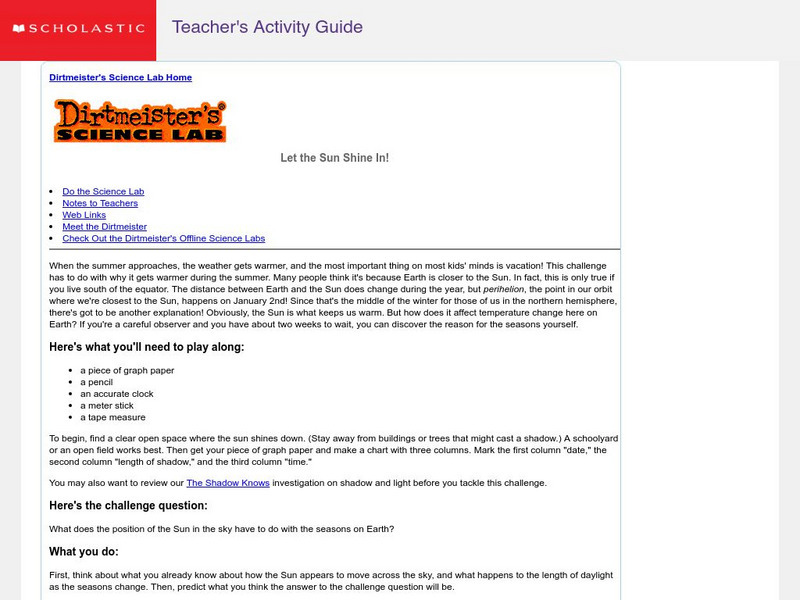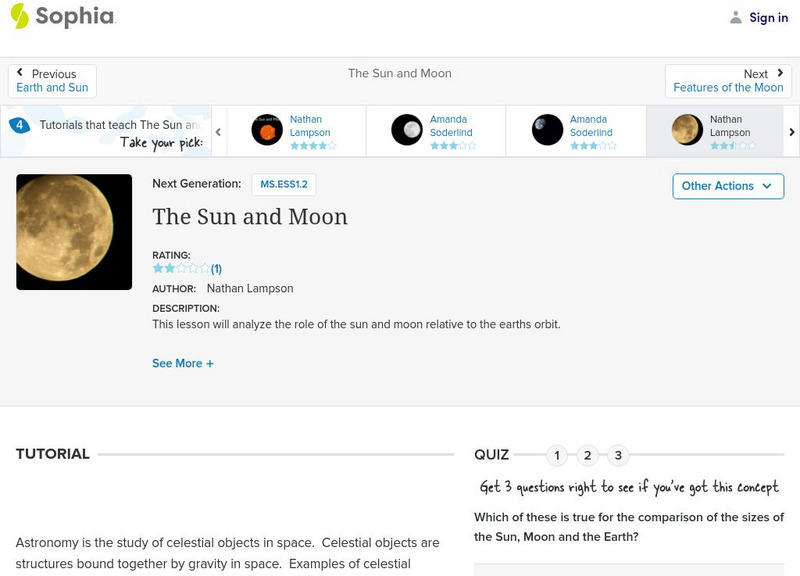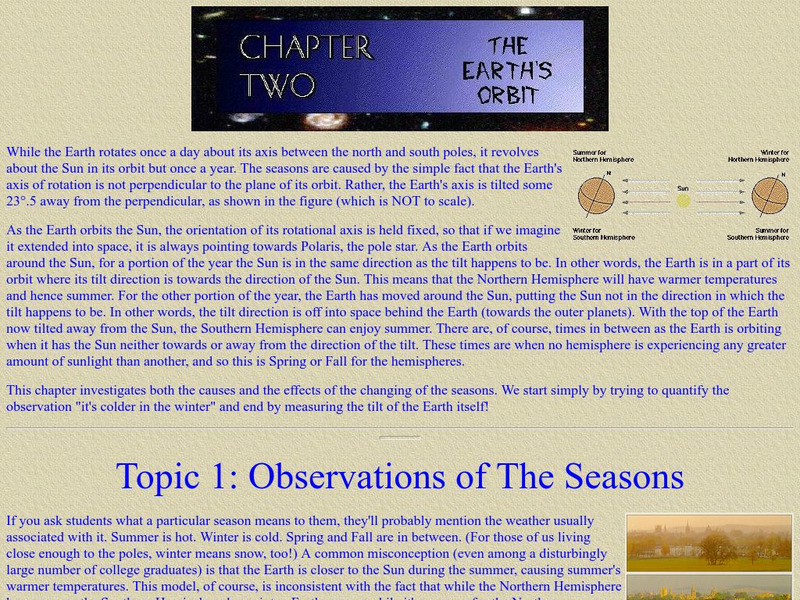Hi, what do you want to do?
Curated OER
Build a Psychrometer
Learners understand that a psychrometer is a weather instrument used to detect humidity. In this psychrometer lesson plan, students build a psychrometer. Learners use their psychrometers to measure humidity activity.
Curated OER
Exploring Energy with GIS
Learners examine GIS technology as it is used to locate energy sources. In this GIS instructional activity, student access an assigned website to locate a series of lessons using the GIS software. They use the maps that are located on...
Curated OER
Measuring Humidity
Learners measure humidity in the classroom. For this weather lesson, students use a psychrometer to measure the humidity in the classroom. Learners complete a lab packet.
Curated OER
Geological Time Line
Students demonstrate knowledge of when coal was formed by plotting a geological time line.
Curated OER
Greenhouse Effect
Students investigate the greenhouse effect. In this environmental lesson, students investigate why the greenhouse effect changes the climate through an experiment. Students use vinegar to simulate how acid damages the environment.
Curated OER
Tales of Changing Seasons
Fourth graders create original myths explaining why the seasons change.
Curated OER
Moon Light Through the Month
Students work in small groups to arrange moon phase cards into the correct sequence. The goal is to circle as many consecutive numbers as possible in two minutes.
Curated OER
The Mathematical Fingerprint of Our Solar System
Pupils study the beautiful mathematical model unique to our solar system.
Curated OER
Rain Machine (Solar Still)
Students experiment with a solar still. In this distillation activity, students find a simple way to use evaporation to make salty water drinkable.
Curated OER
Quiz: Weather Terminology #1
For this science worksheet, 3rd graders focus on the weather. Students respond to ten fill in the blank questions regarding specific terminology used in weather.
Curated OER
Jupiter's "Monstrous" Magnetosphere
Students explore Jupiter's magnetosphere. In this Jupiter lesson plan, students examine a diagram of the magnetic field that surrounds Jupiter.
Curated OER
Astronomical Scales
Young scholars describe the different units of measurement. In this space science lesson, students calculate astronomical distances using a scale. They explain the significance of using scientific notation in expressing very small...
Science Education Resource Center at Carleton College
Serc: Mn Step: The Earth and Sky in a 24 Hour Day
An activity where students learn, through modeling and demonstration, about the relative sizes of the Earth and Sun, the distance between them, and how the Earth rotates in a 24-hour period.
Alabama Learning Exchange
Alex: The Sun and the Earth
The learners will understand the relationship between the Earth and the sun and how this relationship affects observable phenomena on Earth, such as the seasons. The activity will help students learn about these concepts and will...
PBS
Pbs Learning Media: Solar System Scale Model
Teach the concept of scale models and the size of the solar system through this extensive lesson plan. Students will learn about scale models, estimate which objects to use to create a scale model of Earth and Sun, and figure out how far...
NASA
Nasa: The Sun
An introduction to the Sun including its size and distance from the Earth, sunspots, flares and coronal mass ejections.
Scholastic
Scholastic: Dirtmeister's Science Lab: Let the Sun Shine In
Students graph data reflecting time of day and length of shadow, and then draw conclusions about Earth's seasons and position in relation to the Sun.
Sophia Learning
Sophia: The Sun and Moon: Lesson 3
This lesson will analyze the role of the sun and moon relative to the earth's orbit. It is 3 of 4 in the series titled "The Sun and Moon."
Sophia Learning
Sophia: The Sun and Moon: Lesson 4
This lesson will analyze the role of the sun and moon relative to the earth's orbit. It is 4 of 4 in the series titled "The Sun and Moon."
Harvard University
Harvard University: The Solar System
These hands-on activities are a great way for students to gain perspective on the relative sizes and distances of each planet, the relationship between the sun and Earth, and much more.
PBS
Pbs News Hour Extra: Satellites Orbit the Sun to Better Predict Solar Storms
For the first time, NASA scientists have generated a full image of the sun, front and back, using twin orbiting satellites. The new view of Earth's star will allow for the study of solar weather events like coronal mass ejections that...
Climate Literacy
Clean: Earth's Albedo
This engaging activity introduces students to the concept of albedo and how it relates to Earth's energy balance. They measure the albedo using maps, data tables, and a shaker filled with popcorn kernels. Then, they estimate the Earth's...
Harvard University
Eyes on the Sky, Feet on the Ground: The Earth's Orbit
Students perform many inquiry activities related to Earth's orbit. Included are recording daily temperatures, observing the sun's path over several weeks, tracking sunrise and sunset times, and angle of sunlight. Diagrams make lessons...
CK-12 Foundation
Ck 12: Fifth Grade Science: Earth Science: Stars
Investigate what constellations are and how to use light-years as a unit of distance in this module. Learn how to measure star distances in creative ways.

























